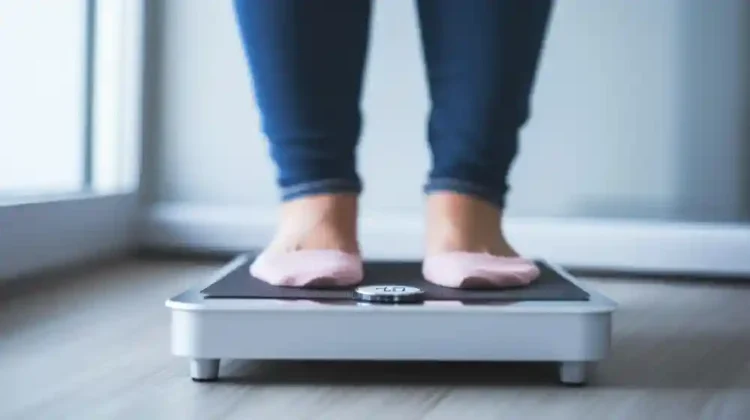Almost 80% of folks hit a wall when trying to shed pounds. They reach a point where their body stops losing weight. This can be frustrating, even with a good diet and exercise routine.
This hurdle is known as a weight loss plateau, and it has been confusing for many. But, a recent study has given us some answers. It’s provided insights on how to get past this difficult phase.
Key Takeaways:
- A weight loss plateau is a common occurrence when trying to lose weight.
- Factors contributing to a plateau include a decline in metabolism due to muscle loss and the body’s tendency to preserve itself by holding on to calories.
- To break through a weight loss plateau, reassess habits, cut more calories, increase physical activity, and manage stress.
- Focus on overall health and other achievements beyond just the number on the scale.
- Overcoming a weight loss plateau requires a holistic approach and dedication to long-term weight management strategies.
Understanding Weight loss Plateaus: Causes and Solutions
Experiencing a weight loss plateau can be frustrating on your journey to shed pounds. It means your weight stops dropping, even though you’re eating well and working out.
There are several reasons for a weight loss plateau. At first, you might lose weight fast because of less glycogen and water in your body. But, continuing to lose weight may drop muscle mass, which slows your metabolism. A slower metabolism burns fewer calories, making it harder to lose weight.
To beat a weight loss plateau, look closely at your lifestyle. Check on how much you’re eating, the processed foods you consume, and how often you work out. To boost your metabolism, try reducing more calories and increasing your activity. Adding strength training to your exercise routine can also help keep your muscles strong and your metabolism from dropping.
Focusing on Health and Lifestyle
Besides diet and exercise, your daily habits can also affect your weight loss. High stress levels can lead to weight gain and make it tough to lose weight. Managing stress with methods like meditation and self-care can help your weight loss journey.
Getting good sleep is also key in overcoming a plateau. Not sleeping enough messes with your hormones, causing more cravings and a slower metabolism. Shoot for seven to nine hours of sleep each night to keep your efforts on track.
Focusing on more than just the numbers on the scale can keep you motivated. Celebrate things like feeling more energetic, getting stronger, and being fitter. Making ongoing healthy changes will not just help you lose weight, but also improve your overall health.

Achieving Long-Term Weight Management After a Plateau
After getting past a weight loss plateau, it’s time to focus on long-term success. Instead of quick-fix diets, lasting lifestyle changes are essential. Making realistic weight loss goals is crucial. The aim is achieving a healthy weight, not just a certain number on the scale.
It’s key to find motivation in milestones beyond just losing weight. Things like better cholesterol or fitting into old jeans matter. They show the positive effects of your hard work and keep you going.
Sometimes, meds like those based on semaglutide can help keep the weight off. But you should talk to a doctor first. They can guide you, making sure medication is right for you and that you’re healthy.
To really make your weight loss stick, you must change your life for good. Keep being active and eating well. This all-around healthy lifestyle is the secret to staying in shape and feeling good.











